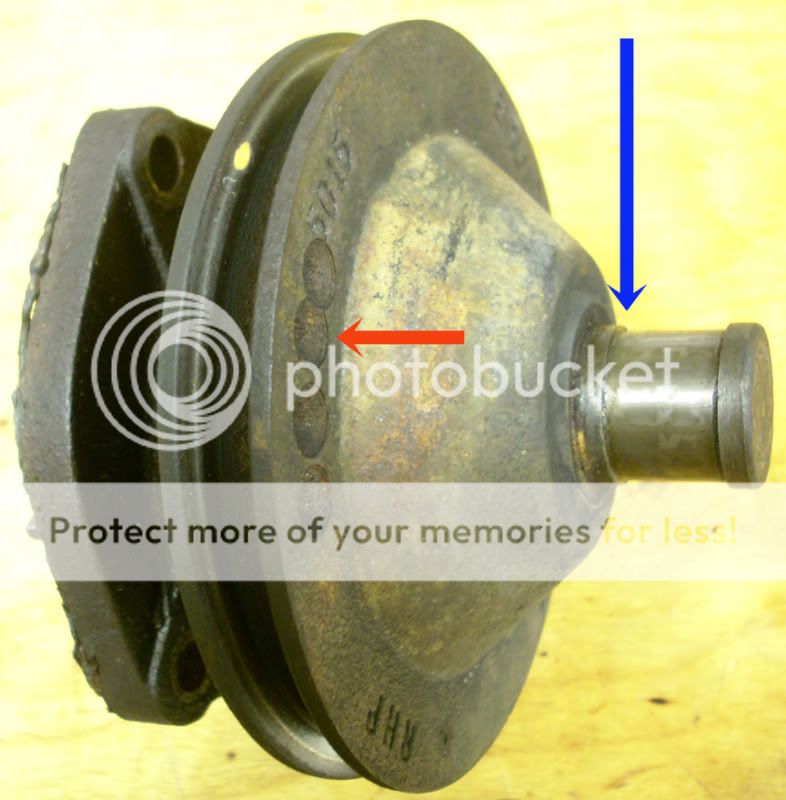bigjones
Jedi Warrior
Offline

Remember, one supplier sent me the wrong plug wires? Well, a different supplier has sent me the correct head gasket - but to someone else!
So, still waiting on putting the CH back on..
Anyhoo's, I was pondering. It's difficult to install an electric fan behind the radiator because there is not much room between radiator and water pump. Above, is the original water pump - the extra length on the spindle is of course to accomodate the (now hated) fan clutch. Could a guy just hack saw off that extra length - blue arrow?
Looks like the original, Made in England, pump - it has been balanced, right? Red arrows.
Replacement pump has no such marks - is current technology such that they can now make pulleys perfectly balanced? Just wondering.
This waiting is killing me. I'm really worried about those head studs stripping out the block. I suppose it defeats the object if you oil them up prior to torquing down the nuts?
Cheers

 Hi Guest!
Hi Guest!

 smilie in place of the real @
smilie in place of the real @
 Pretty Please - add it to our Events forum(s) and add to the calendar! >>
Pretty Please - add it to our Events forum(s) and add to the calendar! >> 